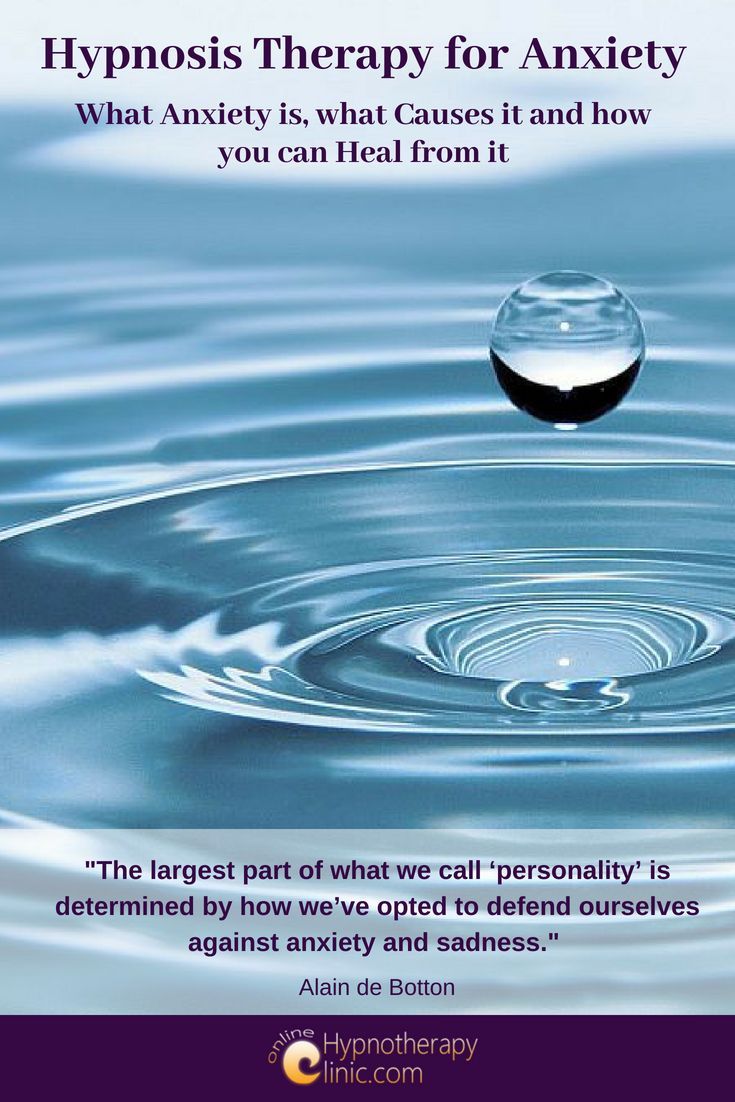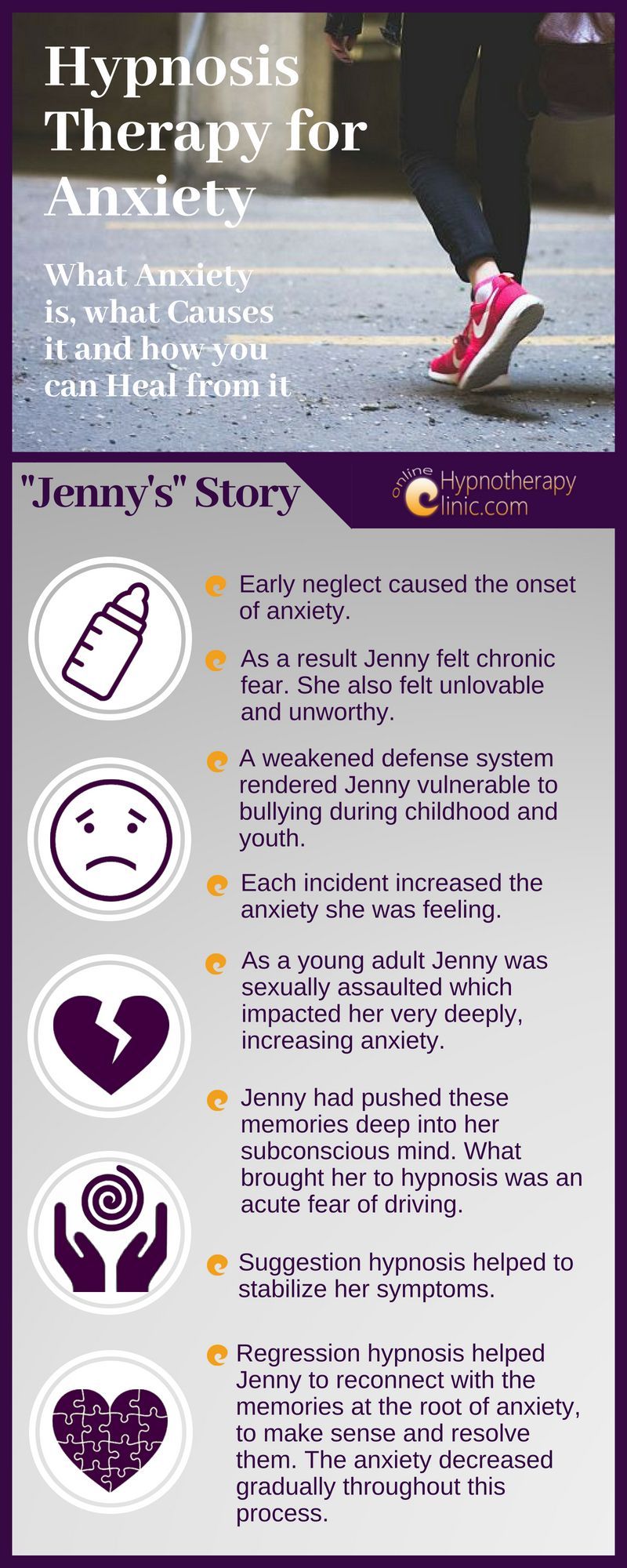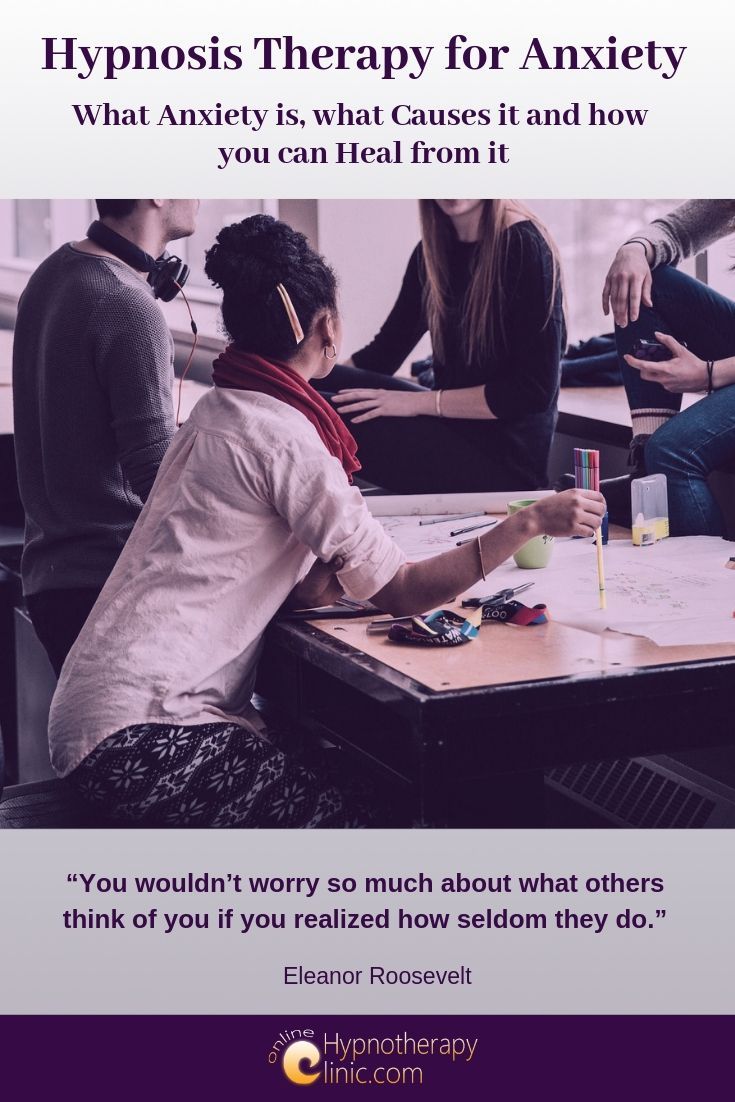Hypnosis Therapy for Anxiety
What Anxiety is, what Causes it and how you can Heal from it
By Susanna Sweeney, MSC, MBACP, CHT
If you suffer from anxiety, hypnosis therapy for anxiety provides a
natural and effective way to free yourself from the symptoms of anxiety
without medication, any other aids, or any dependency on a
professional.
This article is part of a series of articles on anxiety hypnosis I have put together for you so you can find out sound information on how it works and decide if hypnosis may be for you. Find links to the other articles below.
This article will illustrate how hypnosis for anxiety works using a
fairly typical example that is reflective of my client work. Jenny, the
client you will meet in this article, is not a real person but rather,
her story is a blend of different client’s stories. I have changed all potentially identifying details.
I will discuss how Jenny developed anxiety, and what hypnosis did for her.
But let’s start with the basics.
What is Anxiety?
There are many different symptoms of anxiety.
Some people
experience feeling fear or trepidation triggered by certain situations,
people, or events. Others experience a constant or generalized sense of
worry about even the smallest thing, which may even manifest in physical
symptoms such as shortness of breath, racing heart beat, or disturbing
digestive symptoms.
Other symptoms of anxiety can include:
- Physical tension, restlessness and/or not being able to relax
- Sleep problems
- Fears and phobias
At its core, anxiety is connected to fear. The emotion of fear is a part of our defense system.
In
a healthy defense system, fear is a healthy response to danger that
alerts us to take action in order to avoid the danger. Once the danger
is past and we have done what it took to protect ourselves, the emotion
of fear normally abates.
Anxiety, in contrast, is chronic fear-
fear gone awry. When you feel anxiety, you interpret everything and
anything as dangerous while- often, missing out on the signals preceding
true danger.
When you experience anxiety, everyday issues such
as shopping, socializing, driving or studying can produce intense
symptoms of fear. On the other hand, because there are so many fear
symptoms present all the time, your defense system may not be able to
alert you to real boundary intrusions, such as in unhealthy
relationships or friendships.
Does any of that sound familiar?
I
can hear you thinking: “Yes, but I am a rational person, so how can
this be happening to me? How did I develop anxiety and why?”
Let
me illustrate this with an example. I would like you to understand that
there is nothing you are doing wrong and that what is happening to you
is natural in the context of the experiences underlying anxiety.
The
experiences underlying anxiety in your case may not be as dramatic as
those in the example I will use. However, I chose to use a client story
related to quite severe trauma, simply because that will make a clear case for
how the defense system is impacted.
So, without much ado, how does anxiety arise?
Time to meet my client, Jenny. Jenny has attended me for hypnosis therapy for anxiety.
When
Jenny came to me first, not only did she experience generalized anxiety
that made her worry about even the smallest issue, but she was also
experiencing a terrible fear of driving. When driving any faster than 30
miles per hour she would break out in a sweat, feel dizzy and sometimes
even start trembling.
Jenny had to do a lot of driving when
bringing kids to school and to after school events and this anxiety was
most unwelcome. That’s why she came for hypnosis therapy for anxiety.
Jenny
told me that she had always been anxious, for as long as she could
remember. She had become used to the constant sense of trepidation. This
fear of driving however had only been around for about five years. It started after some major upheaval in her life involving a move back to her home town.
Jenny had tried everything, including meditation to try and get on top of anxiety and the fear of driving.
While she had found ways of keeping the symptoms in check enough to
continue to function, she had not found anything that would make them go
away.
Jenny had no idea where the anxiety issue
originated. I asked some questions, as any psychotherapist would, but
the answers were going nowhere. She described a tense relationship with
her parents, but did not believe this was in any way related to her
experiencing anxiety.
What Did Hypnosis Therapy for Anxiety Do For Jenny?
I started working with Jenny using suggestion hypnosis in order to calm down her physiology, enable her to relax and feel safe.
We then started working with regression hypnosis,
aiming to dismantle the constructs underlying her state of chronic
anxiety. Over a short number of sessions, Jenny was able not only to
understand what had happened to her, but also to start letting the
anxiety go.
Over the short stint of hypnosis therapy for anxiety Jenny had with me- along with a lot of other material, she uncovered the memories at the core of the anxiety she had been experiencing all her life.
She had pushed away and practically ‘forgotten’ incidents of being sexually assaulted as a young adult, of being bullied in school by older kids, and of being neglected in early childhood by her then alcoholic parents.
How did these events lead to Jenny developing anxiety?
Good question. This is how anxiety develops.
Jenny the baby experienced a total lack of control when being neglected. Babies and toddlers are very good at communicating their needs and thereby taking control of them (by crying). When the parent responds, all is well and they will calm down very quickly.
But if the baby cries and the parent does not respond to their crying by looking after their physical needs, the baby does not have any control. The only control they realistically can have at that age is then denied.On a physiological level this means that the child will start feeling afraid. Their defense system will conclude that their life is on the line- if they don’t get fed they could die. Physiologically they will be on constant alert. This is how Jenny’s anxiety started.
How Anxiety Became a big Issue for Jenny
Of course this is what young children will do. They are dependent on their caregivers for their survival. Therefore, the parents or caregivers can never be seen as being at fault. Rather, children will twist the story line in such a way that THEY are the ones to blame for what happened.
And that is exactly what Jenny did. Her toddler mind was not capable of understanding the complexities of her parent’s addiction. She changed the story line to one of self blame. Her being neglected really meant that she was not worthy of love, and neither did she matter. And this was the reason that her parents had neglected her. This is how anxiety and low self-esteem are often connected.
All of this happened at the level of the subconscious mind. It manifested in emotions and deep, subconsciously held beliefs more so than in conscious thought.
Jenny the older child and Jenny the young adult would not have been able to tell you why she felt so unsettled physiologically and was constantly worried. Neither would she have been able to articulate that she felt unworthy and had a sense of not being important. Yet, her subsequent story unfolded in the way it did because of this original trauma.
All of this meant that when the bullying issue arose in school- firstly, Jenny did not see it coming. Her defense system was preoccupied with chronic fear so that the warning signals could not get through.
Secondly, because she felt not worthy and not important, she did not seek help and could not defend herself in the same way another child might. Jenny swallowed the anger that will invariably arise when one’s boundaries are crossed.
This cycle repeated itself many times throughout Jenny’s childhood and into adulthood culminating in a sexual assault. Every time Jenny was victimized in some way, she again concluded that this was happening to her because she was unworthy and did not matter, strengthening this faulty belief every time. And each time her defense system missed the danger signals, she developed more chronic fear because there was another loss of control.
I want to be very clear here that Jenny was in not any way to blame. Sexual assault is never the victim’s fault. What I am trying to illustrate is that the early trauma of neglect caused changes in her physiology and self-concept which led on to her being more easily victimized later in life. Somebody more in touch with their own defense system might have been able to spot the danger and get away or defend themselves, but Jenny was not.
Not every client has such severe trauma underlying their anxiety. Comparatively minor events can have a strong impact on your physiology, too. The principle is often around a sense of a loss of control which will invariably unsettle the physiology. (Read about other, relatively minor incidents that can cause anxiety in my article on hypnosis for anxiety.)
More About Anxiety Hypnosis
Can Hypnosis Help With Anxiety?
Find an answer to your question in this article so you can decide if hypnosis treatment for anxiety might be for you.
Hypnotherapy for Anxiety- Reduce Your Symptoms Fast
My dedicated anxiety clinic is designed to reduce anxiety symptoms quickly and from the comfort of your own home. See how it works.
Self Help for Anxiety- 10 Steps for Changing your Life
This article is a must read if you have any anxiety issues. It will set you off to a good start with anxiety self care and getting the basics right.
Anxiety Hypnosis- 7 Massive Benefits for You
In praise of hypnosis as a superior tool for healing from deep emotional issues, I have compiled an article on the 7 most prominent benefits anxiety hypnosis could hold for you.
Hypnosis for Anxiety- The Recovery Process
In this article, using an example from my client work I talk you through the recovery process from anxiety. Get an idea about what is involved in hypnosis for anxiety, how long the process is expected to take.
All About Social Anxiety Hypnosis
Do you think you may be suffering from social anxiety? In this article find out what social anxiety is, how it can arise, and how social anxiety hypnosis can help you.
Self Hypnosis for Anxiety- 8 Wonderful Benefits for You
Find out what major benefits self hypnosis for anxiety has to offer you over attending a hypnotherapist and over other forms of treatment so that you can decide if hypnosis may interest you.
More About Anxiety and Trauma
A new science of traumatic encoding of traumatic memories that finally gives answers as to how we can undo the often devastating effects of trauma.
All my clinical work is focused on dismantling the impact of trauma symptoms going back to traumatically encoded events big and small. See for yourself the wide range of symptoms that can be associated with trauma.
Find out from Dr. Ruden what happens in the brain at the moment of traumatization to make the associated encoding permanent. See ways to decode it.
Heal Anxiety with Havening Techniques®
What is Havening and how Can it Help you Change Your Life?
Find out about a novel psychsensory treatment we combine with hypnosis which can help you clear trauma, fears, phobias, anxiety, low self esteem and more while also supporting you in building resilience and positive emotions.
Havening Techniques- Interviews with the Founding Fathers
Find out about the history of Havening and what sets it apart from other forms of psychosensory treatment and hypnosis.
Self Havening- How to use this Powerful Self help Tool for Best Benefit
Find out how Self Havening could help you change your life for the better , and learn how to use it the right way so that you can get maximum benefit.
But all is well that ends well. Hypnosis therapy for anxiety enabled Jenny to make sense of why she had been feeling so anxious for as long as she could remember.
Hypnosis therapy for anxiety sparked a remarkable recovery for Jenny.
Find out the details in the follow-on article on her recovery process with hypnosis for anxiety.
Regards,

Recent Articles
-
Havening Technique Training auf Deutsch
Apr 18, 25 02:59 AM
Havening Technique Training auf Deutsch- Details und Buchung -
Client Testimonials
Oct 06, 23 06:08 AM
Client Testimonials of my Online REPAIRenting® Program that uses various psychosensory approaches for safe and quick transformation -
Smoke Free Thanks to This Amazing Resource
Aug 02, 23 09:26 AM
Oh thank you for this simple resolution to all my worries! I feel like I have had a weight lifted off my shoulders. It is like cheating on giving up smoking.




New! Comments
What do you think? Leave a comment in the box below.